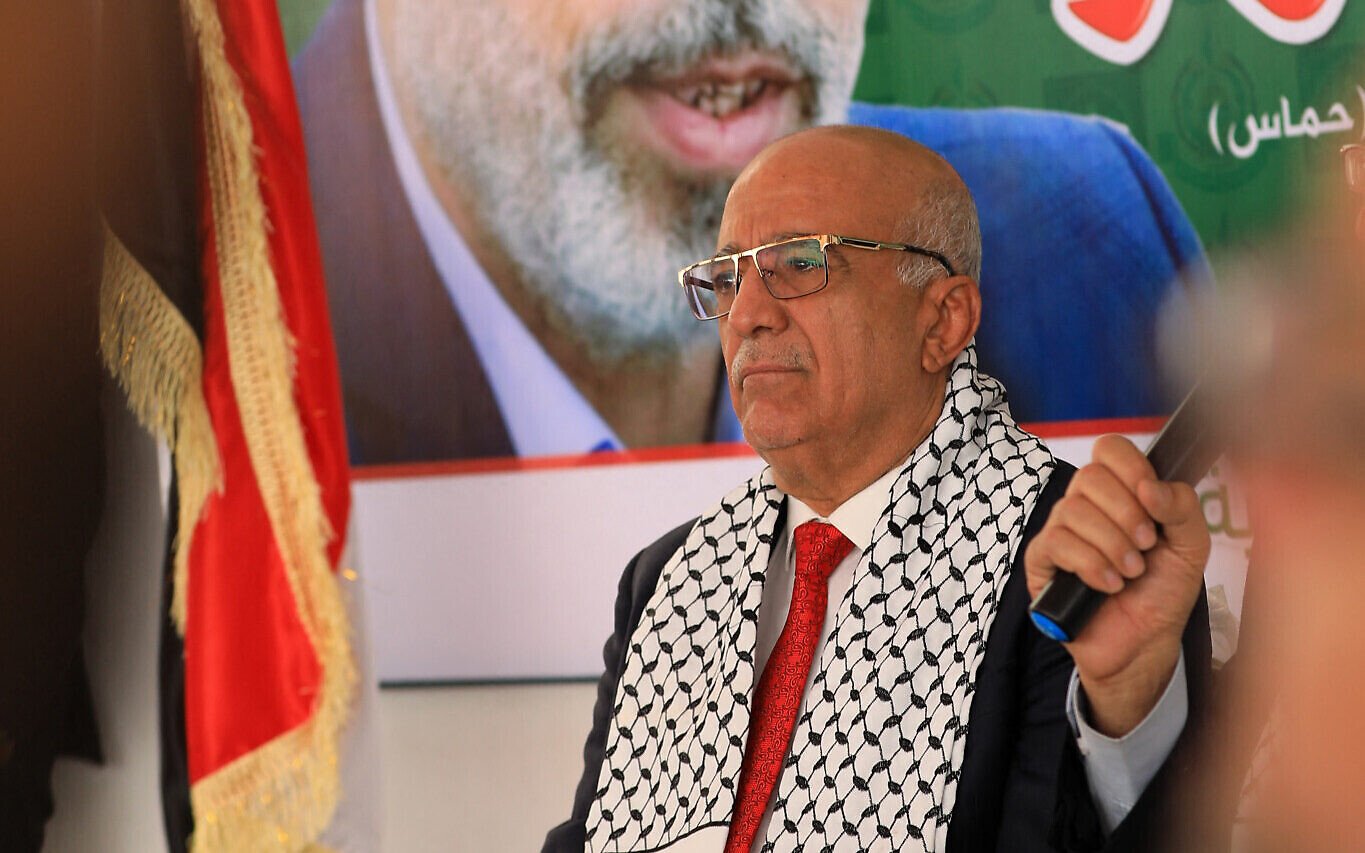



The prime minister of the Iran-backed Houthi group in Yemen was reportedly killed during Israel’s airstrikes on Thursday in the capital city of Sanaa.
Yemen’s Al-Jumhuriya channel and the Aden Al-Ghad newspaper reported that Houthi prime minister Ahmed al-Rahawi was killed in an Israeli attack on an apartment, with the latter reporting that several of his companions were killed as well.
There was no immediate confirmation by Israel.
It appeared from the reports to have been a separate strike from the one on Thursday that was said to have targeted 10 senior Houthi ministers as they gathered in a location outside of the capital to hear a speech by the group’s leader, Abdul Malik al-Houthi.
The outcome of that strike has yet to be fully determined, although political sources cited Thursday by Israel’s Channel 13 news claimed that “the direction [of the assessments] is positive, it seems the attack succeeded,” and Ynet reported that “the assessment that the entire military and governmental elite of the Houthis was eliminated in the attack is growing.”
Israeli intelligence provided real-time details of the gathering, enabling the strike, which was carried out despite heavy air defenses in the area, reports said.
As al-Houthi delivered his address, Israel reportedly monitored it to see whether he realized senior officials were being targeted, and he gave no indication of being aware, the reports said.
Among the Houthi officials targeted were the Houthis’ defense minister and military chief of staff.
The defense minister, Muhammad Nasser al-Attafi, has been in his role since 2016, and is considered the senior-most official in the organization’s military establishment, according to Channel 12.
He was said to have established a close relationship with Iran’s Revolutionary Guards and with Hezbollah, and to be directly involved in operations against Israel.
Also targeted was Houthi chief of staff Muhammad Al-Ghamari, who was reportedly seriously hurt, but not killed, by an Israeli strike in Yemen in June, carried out while the war against Iran was ongoing.
An unnamed senior official told Channel 12 on Thursday that Israel had been ready to target Houthi leadership as part of a different strike on Sanaa on Sunday, but ultimately waited until Thursday.
Officials have cast the strike in dramatic terms. Previous Israeli actions in Yemen have failed to halt the Houthis’ continued drone and missile attacks during the ongoing war, though the earlier attacks usually targeted infrastructure, rather than hitting specific officials based on precise intelligence.
A source from the Houthi defense ministry denied that any members of the group had been targeted in the attack, and insisted that Israel was attacking “civilian targets and the Yemeni people because of their positions supporting Gaza.”
Thursday’s strikes marked the 16th time that Israel has attacked the Iran-backed rebel group in Yemen, located some 1,800 kilometers (1,100 miles) away.
The Houthis — whose slogan calls for “Death to America, Death to Israel, [and] a Curse on the Jews” — began attacking Israel and maritime traffic in November 2023, a month after the October 7 Hamas massacre in southern Israel.
The Houthis held their fire when a ceasefire was reached between Israel and Hamas in January 2025. By that point, they had launched over 40 ballistic missiles and dozens of attack drones and cruise missiles at Israel, including one that killed a civilian and wounded several others in Tel Aviv in July, prompting Israel’s first strike in Yemen.
Since March 18, when the IDF resumed its offensive against Hamas in the Gaza Strip, the Houthis in Yemen have launched 72 ballistic missiles and at least 23 drones at Israel. Several missiles have fallen short.
In response to the Houthi attacks, Israel and a United States-led coalition bombarded rebel-held areas in Yemen, including Sanaa and the strategic coastal city of Hodeida. Israeli strikes knocked the Sanaa airport out of service in May.
US President Donald Trump’s administration in May announced a deal with the Houthis to end the airstrikes in return for an end to attacks on shipping. The terror group, however, said the agreement did not include halting attacks on targets it believed were aligned with Israel.
Stav Levaton contributed to this report.
